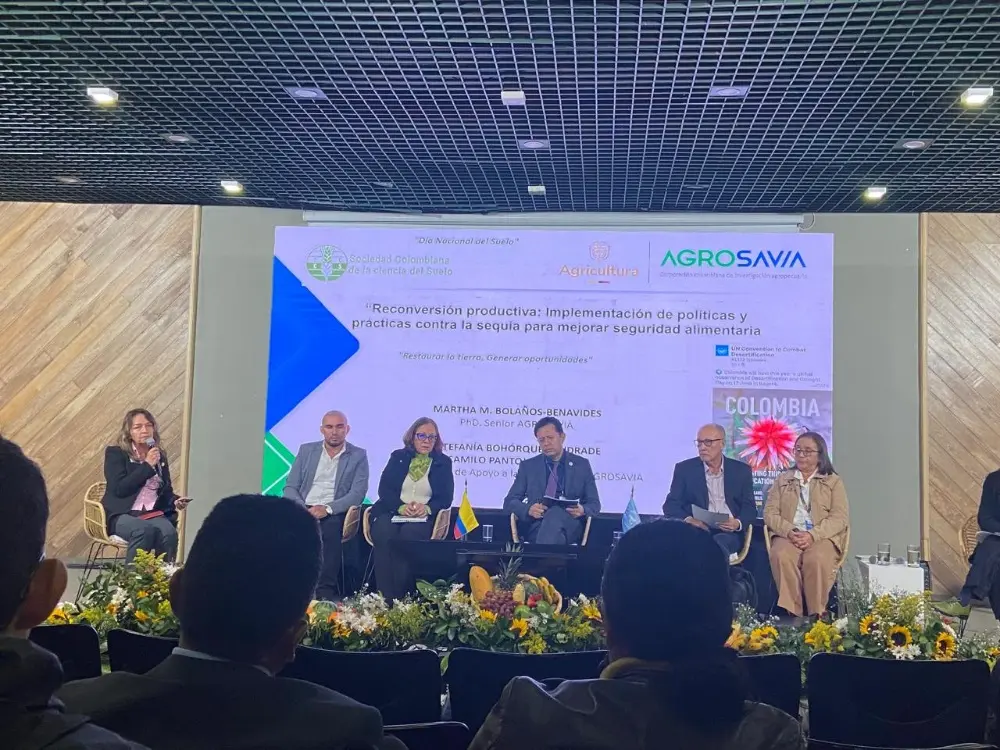- Fertile soil—the foundation of life and food production—is disappearing at an alarming rate. In response to this crisis, AGROSAVIA is emerging as a key player in defending Colombia’s soils and food security through technologies adapted to climate change, agroforestry systems, and productive reconversion projects. Its leadership was recognized during the commemoration of the World Day to Combat Desertification, held in Bogotá.
Mosquera, Cundinamarca. June 25, 2025. Desertification is advancing at an alarming pace: 25% of the planet’s soil is already degraded, and 24 billion tons of fertile land are lost every year. In Colombia, the situation is critical: 46.6 % of the territory is susceptible to degradation, 40 % already shows signs of erosion, and 11.6 % is affected by salinization. In addition, more than a quarter of the country has arid or dry conditions, which worsen food insecurity. Considering this scenario, AGROSAVIA responds with science, innovation, and action.
Some of the strategies led by AGROSAVIA to combat desertification were presented on June 17 at the Agustín Codazzi Geographic Institute (IGAC), where the World Day to Combat Desertification and Drought and the National Soil Day were commemorated, with the participation of representatives from national and international entities.
In the panel -Soil conservation, resilient production, and land redistribution-, Martha Marina Bolaños, president of the Colombian Society of Soil Science and head of the Department of Sustainable Intensive Production at AGROSAVIA, presented the talk -Productive reconversion: Implementation of policies and practices to combat drought and improve food security-, which addressed the impact of desertification and the need to transform production systems to face the soil crisis.
Meanwhile, Judith Martínez, a researcher at the Turipaná Research Center, presented advances in the management of the tropical dry forest, especially in Sucre and Córdoba, through agroforestry systems that improve soil structure, increase fertility, and ensure sustainable livelihoods for communities.
The event featured the participation of the Minister of Agriculture and Rural Development, Martha Carvajalino; Andrea Meza, Deputy Executive Secretary of the United Nations Convention to Combat Desertification (UNCCD); and delegates from IDEAM, the Ministry of Environment, the German Development Cooperation Agency (GIZ), SENA, and various universities. They all emphasized the need to strengthen interinstitutional collaboration to achieve Land Degradation Neutrality (LDN) and stop the loss of fertile soils.
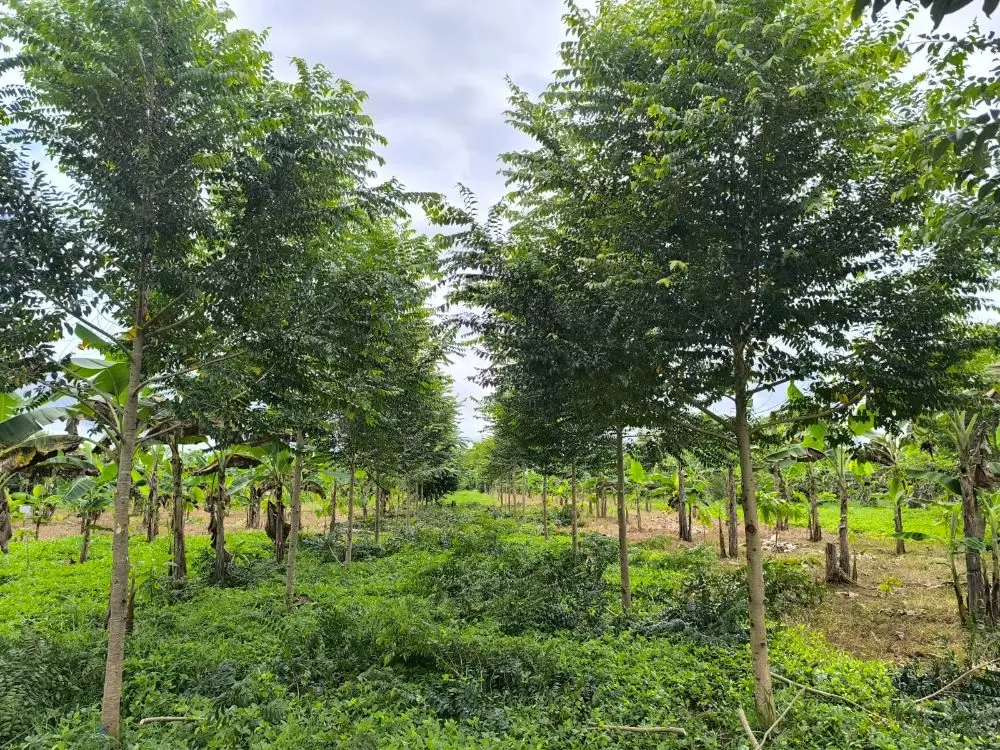
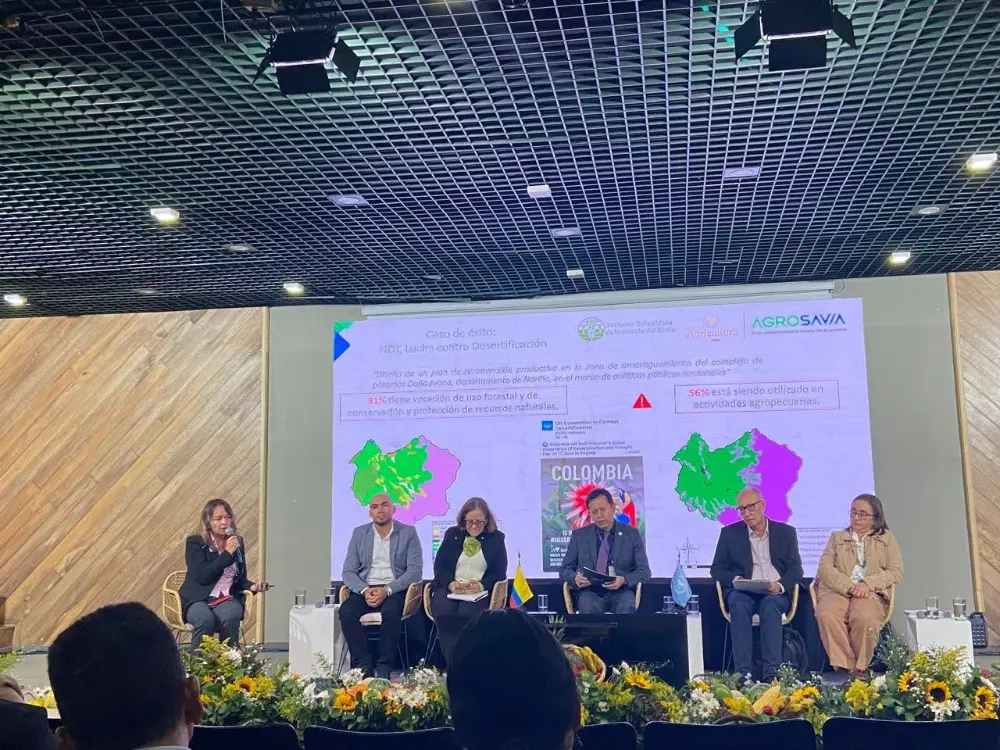
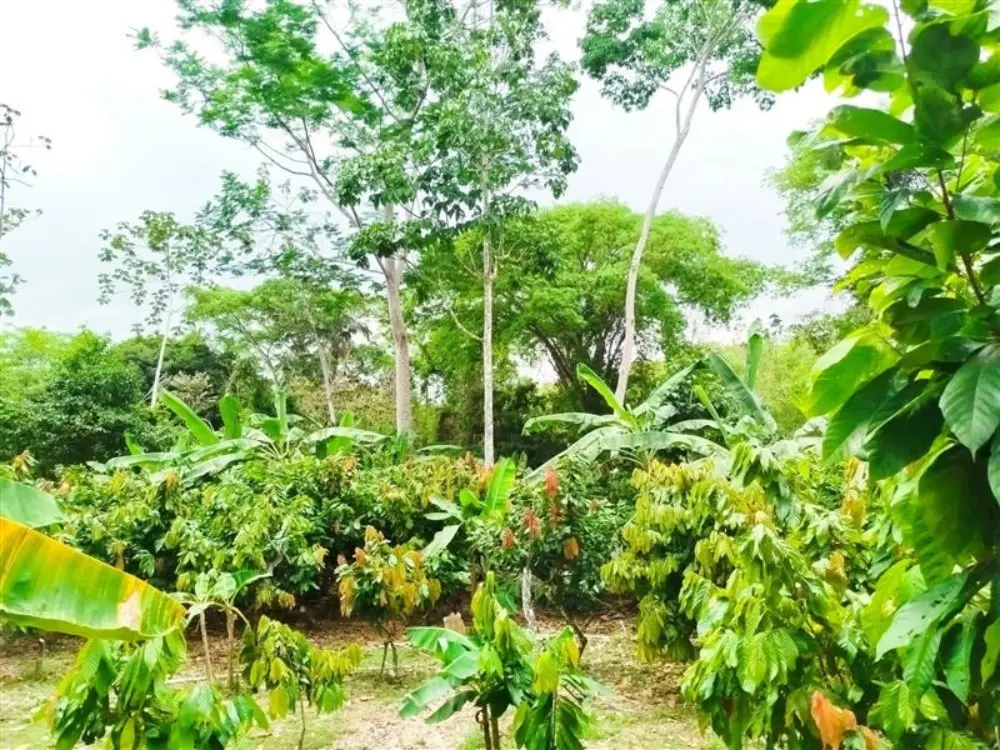
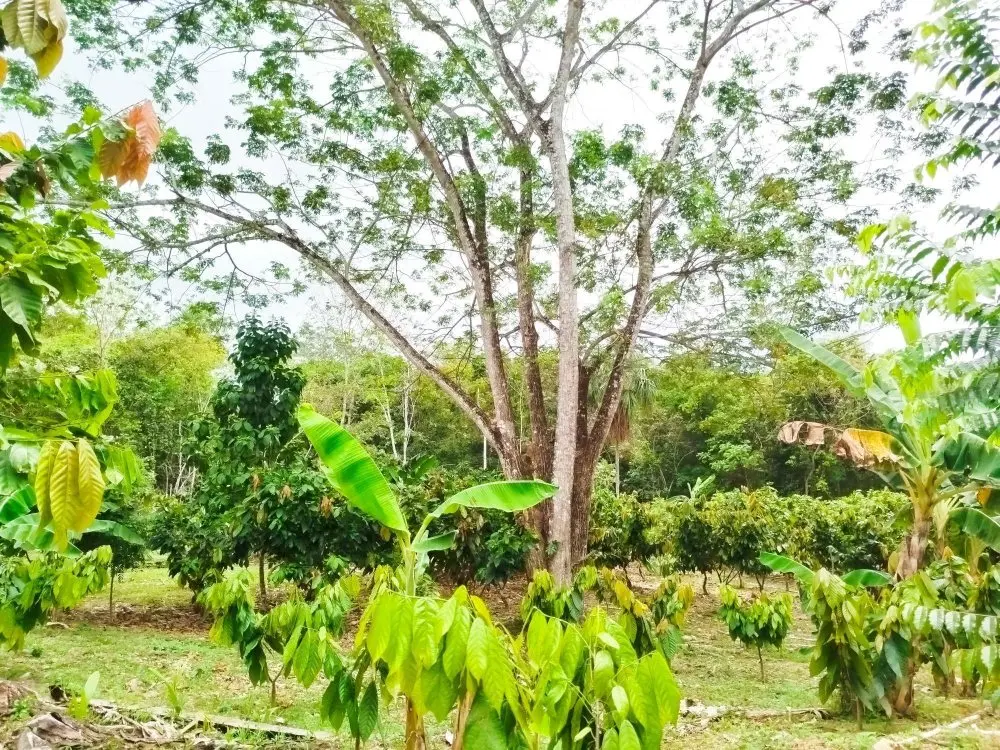
AGROSAVIA’s strategies to combat desertification
As a leading entity in agricultural research, AGROSAVIA promotes concrete solutions to combat desertification and promote the sustainability of Colombia’s soils. Its work combines scientific research, technological development, and support for rural communities.
Some of its most prominent strategies include:
- Productive transformation in strategic ecosystems to restore soils and improve productivity.
- Agroforestry systems (AFS) and sustainable practices that regenerate soil without agrochemicals.
- PlaNA, the National Agroecology Plan for resilient agri-food systems in rural territories.
- Innovation in the achira starch agroindustry, which reduces water consumption.
- The Soil Doctors program, offering specialized technical assistance in critical areas.
These actions are aligned with the National Development Plan Colombia: World Power of Life 2022–2026 and with key public policies such as CONPES 113, Law 2294 on Protection Areas for Food Production (APPA), and Decree 28 on the rights of rural communities.
With high-impact, territory-focused projects, AGROSAVIA shows agricultural sector stakeholders that it is possible to produce without causing desertification, to recover degraded soils, and to move toward a future in which soil fertility and sustainability in Colombia become a reality.
- More information here:
- María Elena Londoño Rubio
- Communications, Identity and Corporate Relations Professional
- Research Center Tibaitatá
- Communications, Identity and Corporate Relations Advisory Office
- melondono@agrosavia.co
- AGROSAVIA



